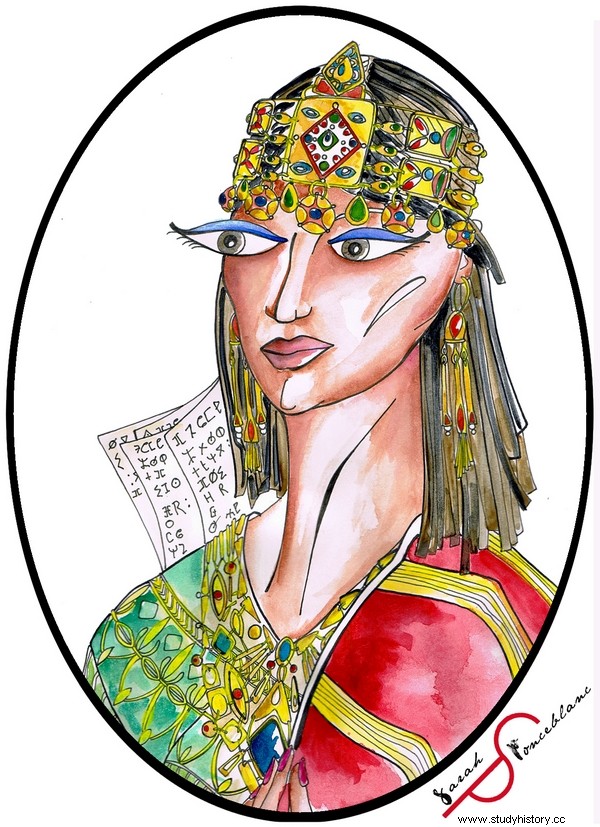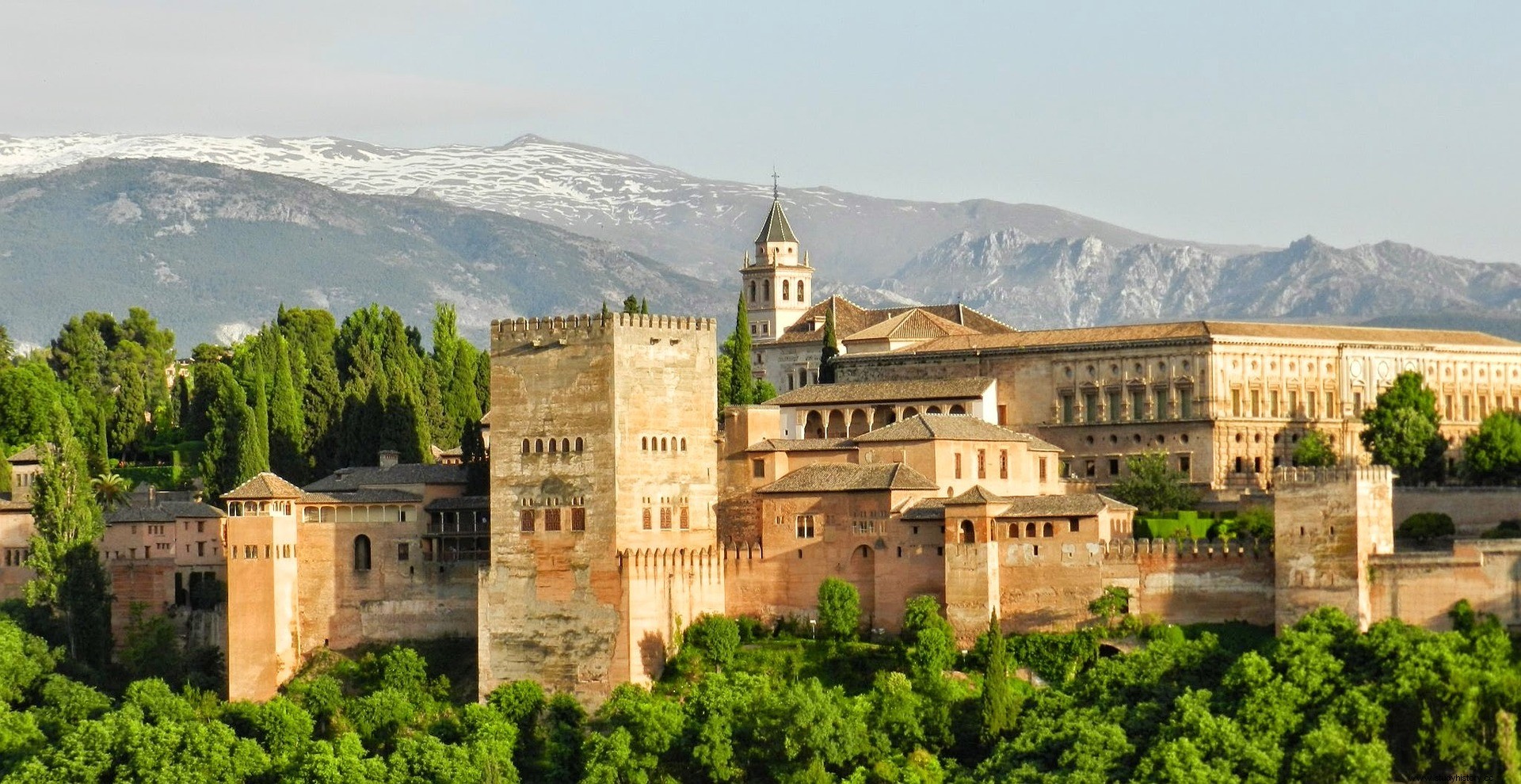Hafsa bint al-Hajj , known as Al-Rakuniyya (1135 – 1191) is an Andalusian poet of Berber origin, recognized for her talent and her culture.
Love poems

Most biographers date the birth of Hafsa bint al-Hajj to 1135. Daughter of al-Hajj ar-Rukuni, a man of Berber descent, she was born in the city of Granada, then under Almoravid domination. Coming from a noble family, she grew up and spent her youth in Granada, where she benefited from a quality education. Her talent, culture and beauty quickly earned her a place at court. Her writings earned her fame beyond the city walls.
Hafsa became friends with the Andalusian poet Abu Jafar Ibn Said, with whom she began an affair. Their relationship inspired an exchange of love poems that have come down to us; members of their literary circle were also inspired by their affair. Hafsa is successful, travels to Rabat with poets and nobles, holds a literary salon. His passionate poems are of great literary quality.
Loves and pressures
The couple's situation becomes more complicated when the Almoravid dynasty collapses and gives way to the Almohad Caliphate. Prince Abu Said Utman, who arrived in 1156 to rule Granada, fell in love with Hafsa bint al-Hajj. Victim of pressure or tired of their relationship, the poetess leaves her lover while rejecting the governor. Abu Jafar, secretary and friend of Prince Abu Said, targets him in his domains and ends up joining a revolt against the Almohads.
Captured, Abu Jafar was imprisoned and then executed by crucifixion in 1163, in Malaga. His arrest and then his death hit Hafsa hard, as she mourns her former lover. Despite Abu Said's threats, she wears mourning clothes in his honor and withdraws from court. Abandoning writing, she then devoted herself to teaching.
In 1184, Hafsa was invited to Marrakech by Caliph Abu Yusuf Yaqub al-Mansur, to direct the education of the Almohad princes there. She died there in 1191. From her work, seventeen poems have come down to us, mainly those she exchanged with Abu Jafar but also some satires and eulogies to Abu Said, as well as laments of the death of her lover.
The dove sings its sadness
Upon your life, our union saddens the garden,
otherwise he would have shown envy and pain.
The river doesn't like to see us so close,
And the dove sings its sadness.
Don't get angry,
For anger prevents good deeds.
If the sky has shown its stars,
This is just to spy on us.

